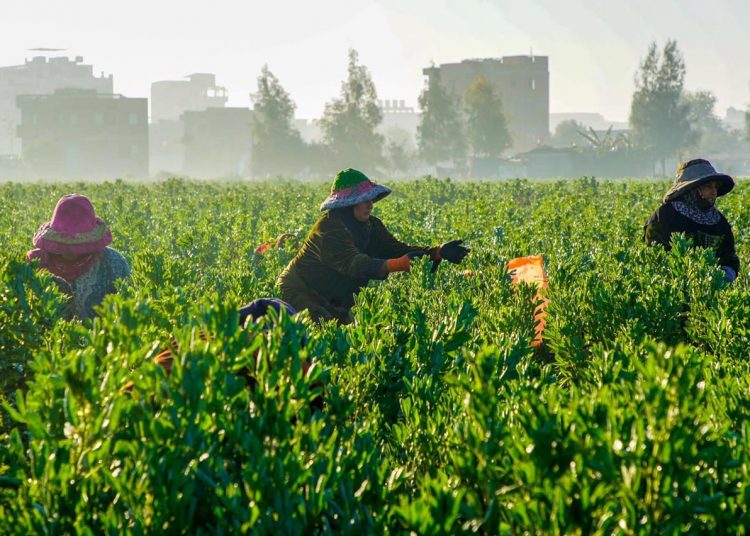Agricultural trade grew 24 per cent during the 2022-2023 season as agricultural exports were worth $3.57 billion compared to the previous season’s $2.86 billion, the Agriculture Export Council reported earlier this month.
Agriculture is a key to the economy and its development is vital for reducing poverty, promoting rural development, improving food security and combating climate change. This is especially so in the rural communities. Currently, farming contributes 11.3 per cent of gross domestic product (GDP), employing 28 per cent of the nation’s work force.
A 12 per cent increase of agriculture’s contribution to GDP is planned for 2024, said Minister of Planning and Economic Development Hala el-Saeed.
“Over the past nine years, Egypt has emerged as a prominent regional and global player in agricultural production and exports,” said agricultural expert Hassan el-Malki.
“This comes after decades of stagnation and erosion of cultivated land, declining productivity, and farmers abandoning agriculture due to its perceived lack of profitability. These issues posed a significant threat to Egypt’s ability to meet its basic food needs,” el-Malki told this newspaper.
“Now Egypt is witnessing upward growth in both area under cultivation agricultural and productivity with the implementation of the projects in New Delta, Future of Egypt, land reclamation in Sinai, East Owainat and Toshka,” el-Malki said.
Hussein Abu Saddam, who is chairman of the Farmers Syndicate, said the increasing number of projects to ensure food security, government initiatives to boost domestic production, and a focus on sustainable and green farming are the factors that are expected to further boost the agricultural market in the coming years.
“The agriculture market in Egypt is expected to reach $6 billion by 2028, growing at an average 3.20 per cent during the period 2024-2028,” Abu Saddam said.
“Agricultural businesses often struggle to fulfill quality requirements, preventing them from seizing profitable sales opportunities in domestic and export markets,” Abu Saddam added.
The Ministry of Agriculture has adopted the Agricultural Innovation Project (AIP) initiative to increase output and food production, improve post-harvest facilities, and marketing infrastructure.
“This project is expected to increase income for small-scale farmers in the country by supporting 10,000 smallholders who farm less than three feddans (acres), as well as individual farmers and members of 30 producer associations,” Abu Saddam said.
He also said the government targets a redoubling of efforts to improve farming-related services: transport, storage, logistics and marketing.
“This will definitely reduce agricultural losses, facilitate access to both local and international markets, and yield substantial returns for farmers,” he added.






Discussion about this post